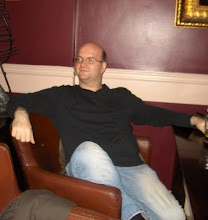I have finally gotten around to watching the 2009 version of The Prisoner. I have resisted doing so for a fair few weeks now, mainly because of the profound affect that the original series had on me.
The first thing that does strike me about the new version is that it is definitely not the original. Like so much in the modern world, we require answers. This was something which, even to this day, the original series refuses to give us definitively. We may have theories, but no definitive answers about it.
This is something that the new series does not provide us with; the new series gives us the answers. It gives us a fully coherent explanation for what is going on. We know what the Village is; we know why it exists, and what the purpose of the Village is.
I think that the reason why the new series does this is because the modern viewing public, in general, would not accept anything like the original series in its enigmaticness. Today, we demand answers, we demand explanations. We are not prepared to accept something that does not have a rationale that we can get from the programme alone. We demand TV that explains rather than TV which makes us think.
I think for this reason alone, I am going to be looking upon the new series as just a tele-visual event which uses the toolbox of the original, the trappings and scenery so to speak, to tell a completely different story. This is probably the better way of looking on it. To fundamentally compare it to the original would be unfair.
So, what did I think of The Prisoner (2009) as a tele-visual event in its own right? Overall, I enjoyed it. For what it is, it is enjoyable.
The first thing that I would recommend is that it is watched, as best as possible, back to back. In doing so I think it is easier to accept it as being one complete story, rather than an episodic adventure. The Prisoner (2009) is basically just one, very long, story with a clearly defined narrative.
With the entire story in mind, the look of The Village made sense. Something like the original location would not have worked the same way that the modern set does. The modern Village makes senses when you get to the resolution in the Checkmate, the last instalment. You can see why they went with the set that they did.
The story itself is interesting. It is very much one persons quest to find the truth about what is going on, the truth behind what he uncovers. However, unlike the original, the quest is complete by the end of the last instalment.
It is hard to talk about the actually story itself without spoiling it for those that have not watched it, and this is something that I would not want to do.
I would recommend watching it, for the unfolding story. However, I would suggest that it is watched on the understanding that it is not the original series nor does it attempt to do what the original series did. The Prisoner (2009) is very much its own beast, with its own story to tell. It uses the trappings of the original but that is all it has in common with the original. Watch it for what it has got to tell, the story it wants to portray, rather than a reimagining of what the original series was.
Monday, 7 December 2009
Subscribe to:
Comments (Atom)
